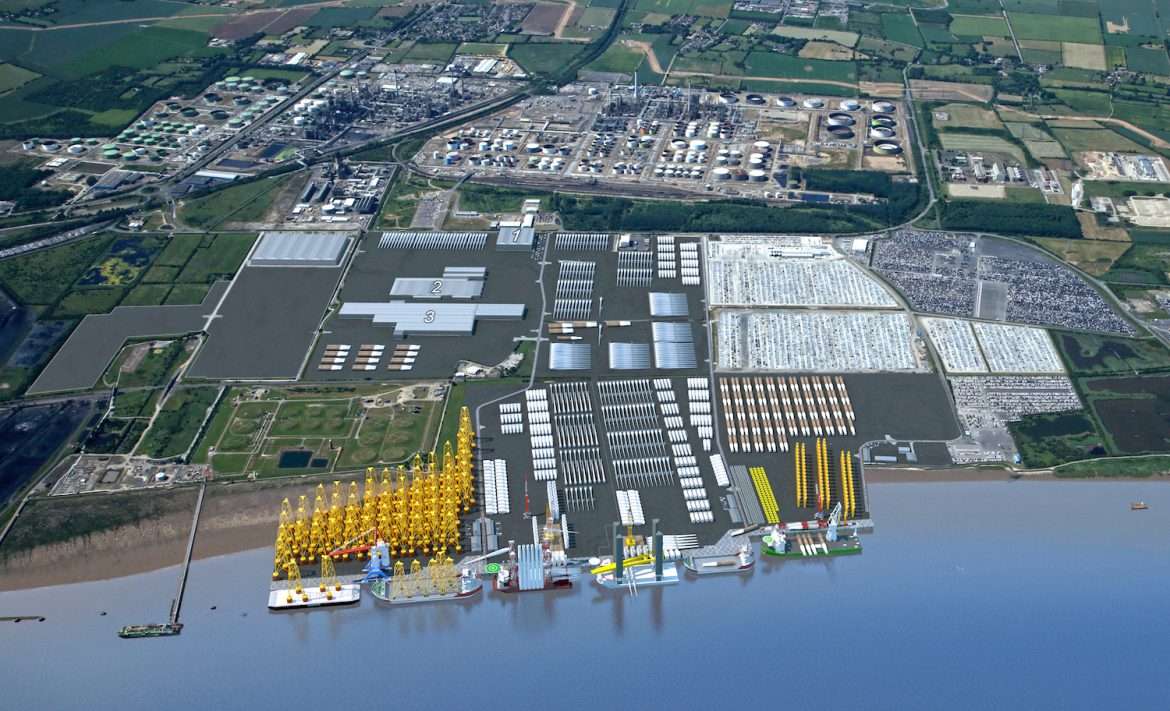
In a ballot vote, more than 81% of the workers at SeAH Wind factory in Teesworks, Middlesbrough, voted in support of trade union recognition. Although the employer was reluctant to agree to recognition, the Government’s Central Arbitration Committee ruled in favour of recognition.
Andy Blunt, GMB Organiser said: “This is a major breakthrough for workers’ rights at SEAH and should send a clear message to all employers working out of Teesworks; trade union recognition is not an optional extra. The green energy jobs of the future must be good, well paid, unionised jobs.
Launched earlier this year and supporting 750 jobs, the SeAH Wind monopile factory is the only UK manufacturer of monopiles – large cylinders of steel used as a foundation for some of the largest offshore windfarms in the world. The factory will be making foundations for Orsted’s Hornsea 3 windfarm and RWE’s Norfolk Vanguard wind farm.
To secure investment in the factory from SeAH’s Korean parent company, the UK Government offered several incentives including a £17 million grant and a £414 million export credit guarantee to underwrite SeAH’s export offer.
Job creation in future industries such as offshore wind, is not just significant for today’s economy, but key in ensuring future generations have good quality jobs, that can allow communities to not just survive but thrive.
The UK is in the midst of an energy transition. UK offshore wind deployment is set to increase more than six-fold, from 14.7GW currently installed to potentially 125GW by 2050. With a new clean power industrial strategy focused on growing UK supply chains and jobs in the sector, this presents a substantial opportunity to create long lasting and jobs rich domestic supply chains.
SeAH Wind is the second high-profile company in the sector to recognise trade unions in a year, following EDF Renewables.
“This result brings us one step closer to making sure that public investment in new technologies delivers for the workers of today and tomorrow, as well as their communities,” Andy Blunt said.
SeAH Wind now has 20 days to reach a detailed recognition agreement with GMB. Strong recognition agreements not only protect salaries, terms and conditions at work, but also ensure there are recognised trade union workplace representatives that can support workers in individual cases and collective negotiations and consultations.
“We now look forward to working with SeAH management to deliver on the clear mandate from our members to make work better,” Andy Blunt said.
Like other companies in the sector, SeAH has benefitted from financial support from the UK government. More important than the direct grant programmes are the Contracts for Difference – a subsidy mechanism that creates stability of future revenues for energy companies. As part of industrial strategy, these forms of public support should require commitment for companies to treat their workforce fairly (including an openness to trade union recognition). This is a fundamental tool in ensuring that when sustainable, futureproofed jobs are created, workers have the opportunity to control their own futures and ensure that job quality is protected through collective bargaining.
A well organised workplace can benefit both workers and employers. Projects with established industrial relations, demonstrate how partnership between unions and employers helps close skills gaps, deliver projects on time, and make sure energy jobs are open to all. Newer companies that are still reluctant to recognise unions would do well to reach out and establish good industrial relations.
